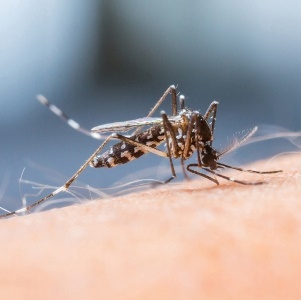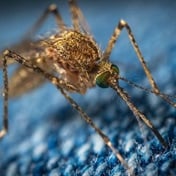
A study published this week was the strongest piece of evidence yet that that the Zika virus causes the neurological disorder Guillain-Barre Syndrome, but more research was needed, the UN said Friday.
Causal relationship
The deputy chief of the World Health Organisation, Bruce Aylward, said the study from the medical journal Lancet which focused on a small sample of people in French Polynesia provided compelling evidence that Zika triggers the syndrome.
"This is the strongest evidence so far that this may be a causal relationship," Aylward told journalists, referring to Zika's link to GBS, which causes paralysis and even death in extreme cases.
But, he said, WHO needed to see similar studies replicated in other areas with the same findings.
Read: How the Zika virus can cause Guillain-Barre syndrome
Aylward added that evidence had also "continued to accumulate" in multiple studies linking Zika to microcephaly, a serious birth defect in which a baby is born with an abnormally small head and brain.
Zika, which is spreading rapidly in the Americas, is usually no more harmful than a bad cold or mild flu, but global anxiety about the mosquito-borne virus has been driven by its probable link to microcephaly and GBS.
"When we look at the evidence... it is all going in one direction," Aylward said.
Meeting in Geneva
The case for the link was made stronger by the lack of evidence pointing to other possible causes for rising cases of microcephaly and GBS, Aylward added.
Read: Microcephaly: Zika virus highlights birth defect
Nine countries in central and South America affected by the Zika outbreak have recorded an elevated number of GBS cases, according to the WHO.
Brazil, which has registered an estimated 1.5 million Zika infections in the current outbreak, has seen 641 cases of microcephaly since October.
Brazil typically reports 150 cases of microcephaly per year.
WHO will next week host a meeting in Geneva to review the findings of the latest research on Zika.
Aylward, who was the UN agency's pointman on the Ebola epidemic in West Africa, described the Zika outbreak as "one of the most challenging situations" he has confronted.
Read: Surge of Brazilian babies born with small heads
The response, he said, has been complicated by the previously sparse information about Zika and the fact that, until recently, there had been no understanding of connections between Zika, microcephaly and GBS.
Aylward also responded to comments made by Carlos Nuzman, head of the organising committee for the summer Olympics in Rio de Janeiro, who said that Zika was not a threat to the Games.
The WHO official said several factors pointed to the Games being broadly safe from Zika, including Brazil's effective response to the outbreak and winter conditions in Rio in August, which should limit the mosquito population.
Read more:
Women in 'Zika countries' should breastfeed
Europe creates Zika drug 'task force'
Brazil's Zika-related abortion debate sparks backlash




 Publications
Publications
 Partners
Partners











